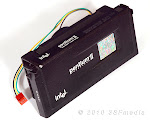There are different types of processor according to the use,manufacture company etc. as given in above block:
- Now a days only two companies manufacture processor as Intel and AMD(advance micro devices).A lot of other companies also which form mobile processor like motorola,IBM etc.
1.Intel manufacture processor like celeron, Pentium,itanium,xeon,atom,core 2 due,dual core,core i3,i5,i7 etc.Intel provide a lot of features in thier processro like power management,speed rating etc. Intel processor adjust thier speed according to demand and u can also overlock thier speed by BIOS(basic input output system) setting.
2.AMD manufacture processor like Athlon,dueron,cyrix,dual core,core i3,i5,i7 etc.some more about AMD is that its speed is always in overlocked condition,so it may now run so long time as intel capacity.
for more about the processor company information click on that link.
- On the basis of instruction set two microprocessor.
1.CISC(Complex instruction set computing):-It is a slow types processor having more functions like playing games,listening music,editing text and a lot of work. Due to more functioning its speed is slow than that of RISC types processor.It mainly used in desktop,laptop computing.
 2.RISC(Reduced instruction set computing):-Its speed is faster and having less functions. These types of processor are design for the special and particular functioning like database,server,email client etc. so,it mainly used in server computer.
2.RISC(Reduced instruction set computing):-Its speed is faster and having less functions. These types of processor are design for the special and particular functioning like database,server,email client etc. so,it mainly used in server computer.
- On the basis of insertion there are two processor.
1.Slot type:-This type of processor is installed in the slot(rectangular in shape and used for card type processor).In this type older version like p1,p2 and p3(pentium 3rd generation) processor installed which came in like a expansion card package like SECC(single edge contact cartidge,SEPP(single edge processor package) etc. These all microprocessor entirely covered with the plastic which also contain heat shrink with fan attached to it.
more about different slot and socket we will discuss in next post.
2.Socket type:-The microprocessor which installed in that socket are mainly square in shape.It is also two types:-
i)LIF(low insertion force):- Pentium 3 and Pentium 4 are LIF
type processor.It require some force during installation to
the socket that's why it is said as LIF.In that,processor has
pins.
ii)ZIF(zero insertion force):-In this type of processor pins are available on the motherboard socket. ZIF type processor is costlier than LIF type. Its modern type processor like Pentium 4 with extreme edition, dual core,core 2 duo,i3,i5,i7 support.Its socket are LGA775,LGA1155,LGA1156,LGA1366 etc. are the socket on which ZIF type processor is installed.
Note:-In previous days processor may damage fast due to pins in it which broke suddenly due to miss handling so its become costlier to change processor than less cost of motherboard that's why ZIF type processor came into picture so that it is easy to change motherboard now than processor which is costlier.



























